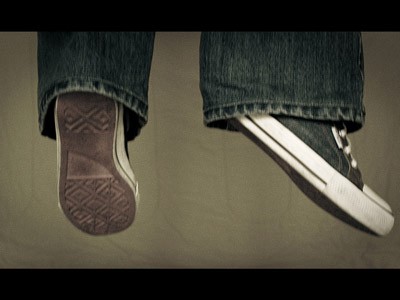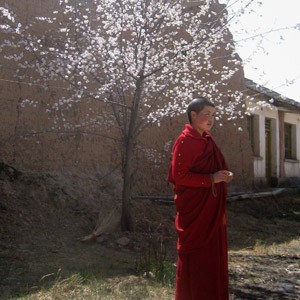Suicide watch
By B. T.

I hung myself. Obviously I did not accomplish my goal. What I thought would be the end of pain and suffering only succeeded in bringing more of the same—not only for myself, but also for the woman who found me hanging unconscious in our bathroom. Five feet tall and 115 pounds, she managed to lift me high enough to make slack in the rope while she cut me down with a knife I carried in my boot. She saved my life. She wanted me to live even when I didn’t care. That was thirteen years ago and from that night until the present there have been many times that I have wished she would have just left me alone.
Why I am telling you this is because it is something that no one wants to talk about. Over the years, upon hearing about my suicide attempt, people often viewed me as if I were insane. Not once has one of my peers acknowledged that they understood my pain, even though the fourth leading cause of death among men between the ages of 15 and 45 is suicide. Most people have no sympathy for one who has taken his own life. He is considered weak, yet men are four times more likely to kill themselves than are women. Nobody wants to hear it. Nobody wants to talk about it. So if no one feels this overwhelming despair and if nobody is struggling with the suffering that samsara carries—is everyone’s life is just peachy keen and they never feel the urge to simply give up—then why are so many people dying this way?
What does all of this have to do with Buddhism? I don’t know. Maybe nothing at all. Maybe everything. I can tell you that it is quite possible that the Dharma has saved my life just as surely as my wife did all those years ago. I won’t claim to be a superb practitioner. I can’t recite endless sutras. I am a horrible meditator. Some days my attention span is just as long as the fuse of my temper. Nonetheless, coming into contact with these teachings has changed me in ways that I would never have imagined a few years ago. Maybe sometimes I am still crazy, but now at least I am aware of it. I am still under the influence of self-doubt and self-pity. I still feel guilt and anger, shame and hatred. I still face all of the emotions that wrapped that rope around my neck. The difference is that today I am mindful of them. When these negative feelings arise I am aware of them and more able to deal with them. I can look at my state of mind and realize that all things—including my emotions—are impermanent.
The thinking that fed my feelings of dread and the willingness to surrender my life had become habitual. At a traffic light that turns green, you put your foot on the accelerator unconsciously. You don’t think about doing it because you have done it so many times before that it is second nature. Lama Zopa Rinpoche, talking of habit in the book Wisdom Energy states, “Habit builds up certain associations so strongly that whenever a similar situation arises, your mind automatically runs towards delusion … If a habit is repeated often enough and its imprint becomes strong enough, you can actually go mad.” I had become so accustomed to just giving up when pressures on me were overbearing that I started to think the same way even when I didn’t face a crisis.
On this high security unit, back here in such solitude, it can sometimes be maddening. Suicide attempts and self-mutilations are frequent. Some of the men who do this want to be moved to different housing. Some may just want attention. Some of them truly want to be dead. All of them are suffering. All of them are treated with contempt and greeted with jeers by staff and incarcerated people alike. When I see this, I am touched by great sadness. I don’t think it’s funny. I wonder sometimes if it would have helped if they had just tried to talk to someone about how they felt. I wonder if anyone would have listened.
Incarcerated people
Many incarcerated people from all over the United States correspond with Venerable Thubten Chodron and monastics from Sravasti Abbey. They offer great insights into how they are applying the Dharma and striving to be of benefit to themselves and others in even the most difficult of situations.


